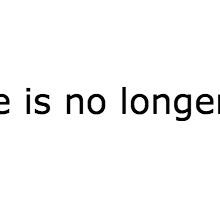
With the ambition and instability of Carrie Mathison and the amoral heart of Walter White, Rachel Goldberg has mowed through her quarry on the first season of Lifetime's Unreal. As a producer in charge of creating story and exploiting the on-set madness of an unscripted dating competition called Everlasting, Rachel, played by Shiri Appleby, has overseen fleeing, bulimic, promiscuous, or suicidal bachelorettes — and then she's made them into plots for the show. She has to, sort of, for her job; but she also likes it.
And Rachel has problems of her own. Fresh off a nervous breakdown (caused by her guilt over working on Everlasting), she has no home, no money, no friends, and her parents are monsters. Her only community — such as it is — is on Everlasting, from her harsh boss, Quinn (Constance Zimmer); to her weak, nice, yearning ex-boyfriend, Jeremy (Josh Kelly); to Adam (Freddie Stroma), the craven, cynical, charming star of the show.
Unreal (Mondays at 10 p.m. ET/9 CT) was created by Sarah Gertrude Shapiro and Marti Noxon. While in her own mid-twenties, Shapiro worked on Everlasting's obvious inspiration, The Bachelor, as a field producer — and no, she did not end up feeling good about it. Her experiences inspired first a short, Sequin Raze, which won a jury award at the 2013 South by Southwest Film Festival, and now the raw, caustic, funny, and almost feral Unreal. Despite low ratings (under a million viewers in Live + Same Day Nielsen numbers for its premiere episodes), Lifetime, a brand in flux, has renewed Unreal for a second season. And according to the network, nearly 5 million viewers watch each episode when all the platforms are added together.
With its 10-episode season speeding to an end — Unreal's finale airs Aug. 3 — BuzzFeed News met with Shapiro and Appleby, who plays her fictional projection. Over a long, loud, multicourse lunch (at Appleby's fiancé's restaurant, Jon & Vinny's), they discussed messy hair, female masturbation, the pros and cons of reality television, and some of the shows more difficult threads. Like that suicide.
Shiri, you've said that you were determined to get the role of Rachel. What drew you to the part?
Shiri Appleby: I've played in the past a lot of roles in connection or in relation to how it affects a man. And if anything, on this show, it's about how the men affect my character. The character is doing things that are dark, ugly — and she's tormented. When I came in to audition, I really tried to play it, and I think we do it on the show, as naturally as possible. And that's exciting, because I feel like so many times, especially for women, they want you to be perfect. I've definitely played a lot of those roles. I'm not complaining about it, but it was exciting to be, like, oh, I don't have to get made up, my acting can be messy, I can talk like a normal person.
Now it's hard to imagine anyone else playing Rachel.
Sarah Gertrude Shapiro: What was so incredible about having the short is that we were looking at the same thing. I think I, like, freeze-framed it, and said, "For the lighting, I think I want the lighting to be that fucked up, and that dark. No makeup. And for people to look fucking awful." And Nina Lederman from Lifetime was, like, "I know, I get it. That's what we want."
So Ashley Williams had played this character in the short, and she ended up booking a Broadway show, so we started casting. I was having a very hard time imagining anybody else in that role. It was a really tough process. And Shiri walked in, and it was done.
SA: No, but you said at my audition, "But you're so pretty!" And I was like, "But I don't feel pretty."
SGS: And I was like, "OK, as long as you don't feel pretty, we can work with that." And Shiri has actually brought so much to the role that I couldn't have even imagined. There's so much vulnerability. I call it the Jappy girl next door. You'd totally bring her home to meet your mom, she's great with grandmas. It's disarming.

You're both talking about prettiness: It is a show that stands out in that Rachel's hair looks like a mess sometimes, she looks like she hasn't showered, she looks like she's wearing dirty clothes. Watching it, you realize you never see that. I was curious about the aesthetics of that decision.
SGS: Marti and I talked about the two different worlds on the show: The producers are sort of like the mole people that live in the walls, and the contestants are beautiful butterflies that live under the light. It's so much about defining yourself as a woman: Are you a career woman, or are you a pretty girl who's going to be saved by a guy in a helicopter? Establishing that palette and those costumes was actually a huge part of the creative process.
Are they making your hair look messy for individual scenes, Shiri?
SA: It's 20 minutes start to finish, hair and makeup both. This is the most myself I think I've ever looked on camera. We shoot two episodes at a time, we do one bun — the same thing for the two episodes — they set it with pins, and I'm like "I'll see you guys at the end of the day to give the pins back." I'm running around, I'm doing things — if it looks pretty, it looks fake.
The hair and makeup people must be busy with the contestants.
SA: Two hours for some of those girls!
SGS: I feel like the costume got a little gross for you after a while, didn't it?
SA: I didn't really mind wearing the same thing for the whole season, but the crew itself, the real crew, kept saying things to me.
What do you mean?
SA: They were like, "You should have them change your clothes." I think the wardrobe department had a hard time understanding that I wanted to look like a normal person, and they didn't know how to dress that.
SGS: It was really hard for me to get the wardrobe department to focus on Rachel. They kept sending me, like, 20 options for contestants and one option on Rachel. I was like, "Do you guys not understand that she's the star of the show?" Even though she's a schlubby character, her clothes do tell a story about her. They tell a story when she's feeling bad, and they tell a story when she's feeling good.
What's it like to see yourself —
SA: Looking beaten up like that?
Well! You just don't look like you're an actress on a TV show.
SA: It looks pretty awesome. I feel like I look like myself. Some days, you can see my bags under my eyes more than others. And it feels real for the character. I don't know, it feels pretty freeing, to be honest with you.
Rachel's moral compass is all over the place, and part of being good at her job is that she is actually manipulative. What do you think of her?
SA: I feel like there's a part of her that has to enjoy it. It feels good to win and succeed. I kind of attribute it to a high — she really gets high, and she gets off on it. Then once the high wears off, and she's taken the person down, I think that's when the guilt shows up. What would you say?
SGS: I would say that it maybe also feels good to take a bitch down. Especially a dumb, pretty bitch. We've talked about revenge of the nerds behind the camera too, the kids who maybe were in drama club in high school who now get to kind of destroy the prom queen and king, and fuck with them and be more powerful than them and be smarter than them, and kind of control their lives. There's a power trip.
Rachel doesn't seem nerdy to me — is it more alt kid versus cheerleader?
SGS: I don't think she's nerdy, yeah. We talk about this a lot in the writers room, that sort of a nice calibrating question whenever we're getting a little offtrack, we always ask: Why is Rachel here? Why does she stay? And the biggest answer is where else would she go? And the fact that none of us can answer it is why she stays. Because it's really hard to determine your own destiny. At least here, she knows what she's good at. She has a nickname, she has a work mom, she's got a work husband. She's got a place in the world.


I find the Shia character, played by Aline Elasmar, to be interesting. She's jealous of Rachel, she does what she thinks Rachel would do, and then it goes to the left and something awful and tragic happens with the pills.
SGS: The thing I'm a little bummed that people aren't picking up on about Shia is that she did that because she wants love. She wants Quinn to love her! She just went too far because nobody loves her. And she wants somebody to love her. I have a lot of compassion for what Shia's doing. I think that she's overlooked for really shitty reasons. She's not as pretty as Rachel, she's not as fun, people don't like her as much. And that feels like shit. And she's super hardworking, and she's loyal. She's never going to get anywhere because she doesn't look right.
Quinn is cartoony and funny at first, and then you realize even in the pilot that there's going to be a lot more to her.
SGS: I always had that person in mind for the show, in terms of Rachel's mentor/tormentor — the person she's going to be in five years if she doesn't get away. And I think it's funny that you say "cartoon," because when we auditioned people for the show, we talked a lot about putting a ban on Disney evil queens. Because that character can go there so quickly, like really arch. And Constance again just found a way to solve it that's so unique and has a lot of humanity.
What have been some moments when you're like, This is it, this is what the show is about?
SA: One of the scenes I always think about is actually a pretty small moment. It's in the pilot, between me and Mary, the mother. And in my ear is all of the stuff the doctor's telling me about her, and they're, like, "Use it against her." And you see the pain in my eyes. And I do it anyway. That to me is what the show is about — how we take other people down, take other women down. We're doing things that maybe don't feel right to us, but maybe feel good at the same time.
SGS: That scene blows my mind. There's something Shiri does when she walks away from Mary, she says, "You look beautiful, get out there." And then she turns away and wipes a tear — because she's actually crying. Because she's really upset.

There's a darkness to the show, and I'm curious about conversations you've had with Lifetime about some of the more difficult scenes.
SGS: I think they could tell that, as we were trying to figure out our relationship with them, we were censoring ourselves a little bit in the beginning. So there've been moments when they've asked us to go darker. They've said, "We can kind of tell that you're holding back, so just go for it, and we'll reel you back if we have to." That's been incredible. Anything that they've gotten a little uncomfortable with — some sex stuff was too far for them. I would say gross — I really like stuff to be super gross. There've been a couple of things that have been too gross for them.
Like what?
SGS: I think it was something with her period. It got a little Girls. It was too much. In 105, the episode with Faith that ends with her masturbating in a grip truck, my first draft ended with her getting fucked by a FedEx guy in the back of the truck. And they were like, "It's a little bit hard." Just stuff like that. Tone was a conversation for the first couple of months, nonstop.
Because it's a really interesting thing to figure out, because the world is really silly, but our show is not silly at all.
SA: We were up in Vancouver by ourselves, and all the actors were asking me, "What's the tone supposed to be?" I'm like, "Just play it real. Don't play it for a joke, play it for real."
I want to ask you about a few specific, difficult plot turns, like the rape.
SGS: You're talking about Maya, the implied date rape. That was very controversial at the network. It was a really scary thing for them to take on. And there were a lot of back-and-forths on what we were going to show and not show. We pulled back on that a lot.
I think it's more upsetting and effective to pull back on it.
SGS: And a really, really important moment for me is when the contestant, Maya, tells Rachel, "Stop making such a big deal of it." That really is the heart of what we were trying to talk about — how women internalize rape, and how they avoid addressing it. But I think for Lifetime and for us it's just such an incredibly huge issue to take on in the context of our show that's already really full, that we just wanted to walk a really careful line with that. Let it be what it was. But we can't take more responsibility for sorting that issue out because it would be irresponsible.
With the masturbation scene, as you talked about in the Huffington Post, female masturbation is not something we see on TV that often. Bookending an episode with it is a whole other thing.
SGS: I almost want to call that episode "Blue Balls." Because it's just about Rachel not being able to get off, but there's so much else going on. I think in terms of the masturbation being really authentic, that was important. Because I get so sick of seeing girls on shows go into the bathroom stall with their hand and jerk off like a guy. I have never — I don't know anyone who does that. Do you guys?
SA: I don't even think about it when I'm out in public: I'm so horny, I'm going to go masturbate?
SGS: Even Orange Is the New Black, which I feel like gets a lot of stuff really right, there's the thing now where there's porn going around that Crazy Eyes is writing, and somebody is jerking off in their bed. Everything about it doesn't look real to me.
So that was important. But actually, that moment in the beginning of the episode where she can't get off to porn is a really important moment for that character. She's not having sex, she's not in a relationship, she has no time for a life, and she can't even jerk off to porn. She's so dead inside. And the fact that reconnecting with a real human in Mississippi — that moment with Jeremy — is what brings her back to life, and that true love is the only thing that actually gets her off, shows how much more complicated that is. For her, it can't just be sex. She actually needs to have connection. And that's what gets her off.
Is that how you felt about it, Shiri?
SA: Yeah, I feel like she was kind of woken up by making out with him. She was left with blue balls, I think she was really turned on. I think she was also pretty excited by everything that ended up going down with Faith. In a way, she's just feeling good about herself again, feeling more in tune with herself again.



The scene when Adam is prostituting himself to the investor was another surprise. And not only is he having sex with the investor's wife, but the sex is being watched by two men.
SGS: That was rough. It was rough to talk about, it was rough when the dailies came in. I think it was a really brave thing of Freddie to do — and generous, really generous. Freddie is a person who is kind of private in his real life, and he is British and he's pretty straitlaced. He's a human being, he's an actor, and he had to think about his parents seeing that. But flipping the gender roles is so important to us in this, and having him be sort of prostituted out or paid for his body was a really important thing for us to have happen. And the contrast we're drawing in such obvious ways every episode is the beautiful, fake fairy-tale world and then how sex and love actually work. Seeing a scene like that that's so gruesome and so dirty and so raw and so animal in a world where there's twinkly lights and stars just right outside — he's just been in a palladium full of pink flowers and girls in dresses and ponies, where everything is perfect and romantic. But what's actually happening in the bowels of that world is he's fucking the shit out of somebody's wife in front of the boss of the show for money. We always look for sharp contrasts like that.
Awful in a different way is when Rachel is sent home to her parents, and you think maybe they're going to be a refuge for her — maybe she's just been resisting their help. And then you realize, Oh, they're crazy too!
SGS: It was really meant to show that Rachel has nowhere else to go. And to give us a lot of empathy for why she is the way she is, and why she does what she does. And that she's really doing her best, given where she came from. But really, most of all, to show she can't go home.
I was wondering about your decision to include Mary's suicide, something that really could have just brought the show to a point of no return. I'm curious about that, and I'm curious about what kind of feedback you've gotten about it. You're both making faces.
SGS: That episode was terrifying for me. It's kind of like extreme sports for writers. Fucking yourself that hard and having to get out of it is intense. I think of it as like an Olympic event that happened. Because we went that far. It's an extra challenging tonal thing on Lifetime, because it's domestic abuse and it's moms.
And your lead character arguably causes Mary's death — or at least is a main actor in it.
SGS: Our motto is go hard or go home. When we were breaking the story, that's what felt right, that's what felt real. We wanted to go there. It was a really, really scary thing to take on tonally. And we did it. There were a ton of conversations about adjusting that episode tonally in the edit, finding the tone of it on the set. Everything.
SA: On set, when the scripts come out, we're shooting two episodes at a time. I was always working, but all the girls would say, "Shiri, Mary's killing herself!" I was like, "What the fuck?" I mean — I think the show rebounds. The show rebounds.
SGS: We go hard. That's all I'm going to say. We're a young, wild, crazy show that just goes hard.
SA: Did it work 100%? I don't know. It worked enough that it aired, and people are still watching.
SGS: The reaction was a lot of shock. A lot of, I trusted this show, I'm with this show, I'm with these characters — I really hope I can trust them next week.
There are obviously similarities that are not only in the structure of The Bachelor and Everlasting, but in certain specific behind-the-scenes things. Did you sign an NDA?
SGS: I did! Everyone does. But the NDA is very much about spoilers and industry secrets and trade secrets. But also it's super important to me from a creative level that this is 100% fiction. It really is. We wrote the show the way people write shows, with five giant whiteboards and a lot of dry-erase pens and a lot of Trader Joe's snacks.
But surely the fear of a lawsuit must have been real on Lifetime's part, if not yours, right?
SGS: Yeah. And that was an important part about establishing what we were doing. Which is: We were trying to make a female Breaking Bad in reality TV in a totally fictional, dramatic show about a subject that is almost common knowledge at this point. There have been so many exposés, and so many contestants that have talked about their experiences.
One of the themes of the show is that the contestants aren't emotionally or physically safe. Is that something that you think about reality TV?
SGS: I think it's really intense that everyday joes hand over their lives to people they barely know in exchange for a small amount of fame. But I think it's also hard to say that blanket-wise about reality shows, because I also think there are some that are really positive and change people's lives for the better, things that are productive. I do think it's a strange concept to say, "I'm going to give up my phone, my internet, my control over my own food, sleep, and housing to you — people who are trying to make a story out of me." It's a strange situation.



Sarah, how Rachel were you? How specific to the bad things that you went through are we seeing?
SGS: Plot-wise, not at all. Thematically, very much so. I just feel like a lot of the stuff she's struggling with is stuff that I've struggled with in my life. Again, it's fiction. My mom's not a psychiatrist, I have beautiful, loving parents. My life is so, so different.
A lot of the positive press about the show has also taken a minute to take digs at reality TV in general and The Bachelor in particular. It's, like, a stance somehow.
SGS: I think Marti might have a different opinion about it, but for me, it was never a takedown of the show. It was just a great fucking place to set a show.
Do you watch reality TV?
SA: I watch Project Runway and, I'm not going to lie, I watch The Kardashians. I like them!
I feel like I've learned a lot about other people from reality television. What their jobs are, what people are like in places where I don't live.
SGS: I actually think it's adorable and super hopeful that we're all so curious about each other. It actually makes my heart warm that people give a shit about ice road truckers and pawn brokers and swamp people in Louisiana. We are fascinated with each other, we love each other, we want to pull each other apart and go into these different worlds. And I love that. I'm a super hardcore feminist, so some of the shows are hard for me when it's setting up something that I think is really damaging. And that's me and my politics. But that has nothing to do with the genre of reality TV.
I think also watching people try to find love is super fascinating. It's totally, endlessly fascinating. And I think MTV is largely responsible for the evolution of gay rights in this country. The Real World started it. It's really, really important. It's part of the reason I'm in television, honestly.
SA: I just like it 'cause it pays!
SGS: I have a lot of friends who went into experimental filmmaking and visual art and very obscure, snobby, fancy stuff. And I was always like, I'm going to make TV. Because it changes the world.
Lifetime has pushed the show hard. Putting it on iTunes for free is how a lot of people I work with caught up. Were they saying to you, "We don't care if zero people are watching?"
SA: No, they did not say that.
SGS: That is not what they said.
So when did you know it was going to be picked up for a second season?
SA: The day our contracts expired.
SGS: At midnight. Yeah. It's a big step for them; they've taken a huge leap. And I think it's just taken everybody a while to get their head around what it is. It's not their normal audience; it's not their normal way of measuring the audience.
How will you make sure both next season and in the possible more distant future that it makes sense for Rachel to continue to work there?
SGS: It's Rachel's story, and it will always be Rachel's story. I think we feel like the evolution of a young woman finding her way in the world is super ripe and has a ton of legs. To get inside somebody and go through the world with them has always been the aim of the show. We're going to break next season around what Rachel's going through, not what we want to see on a reality show. And we're very happy to go on that journey with such a little freakball. Because she's such a freakball.
This interview has been edited and condensed.
